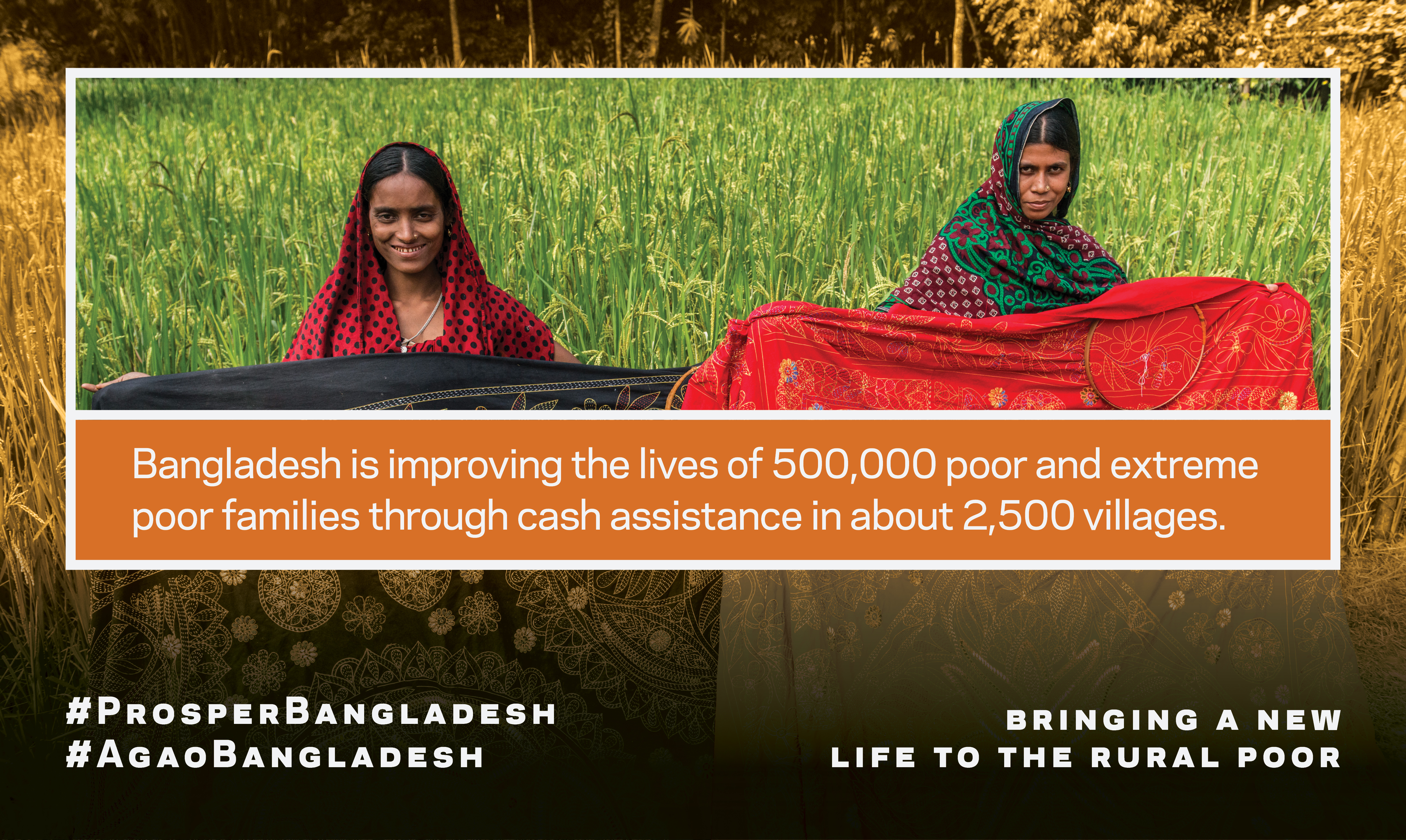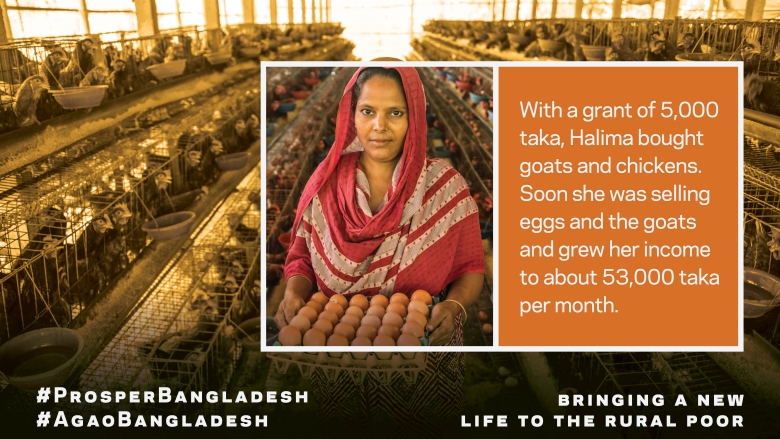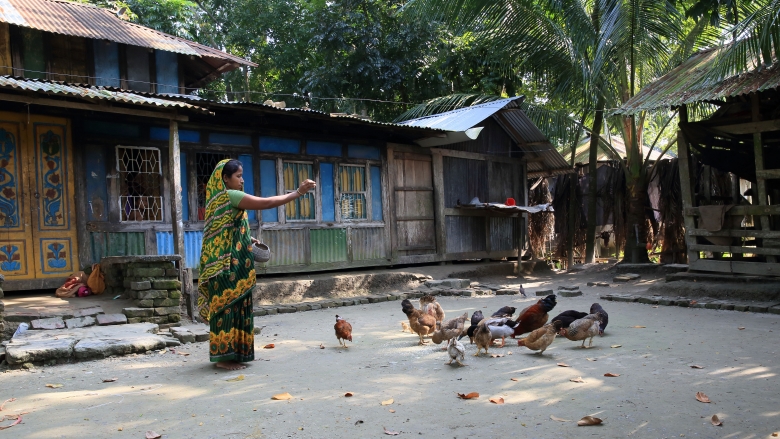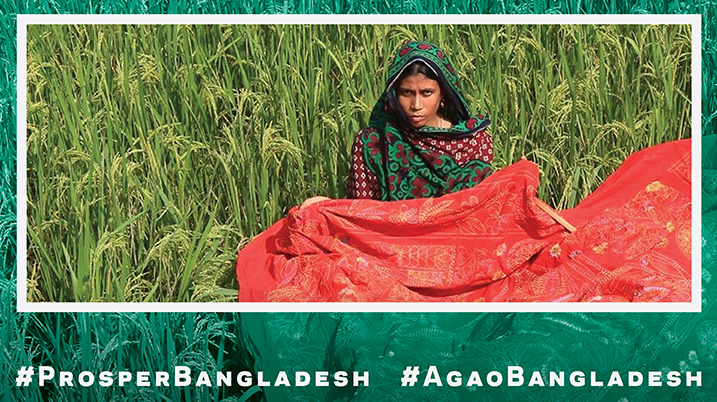When her husband, an impoverished sharecropper, died about 15 years ago, Halima Begum was left to raise her three daughters in a crumbling, leaky house on a small plot of land.
Living in a village named Dakhhin Rakudia under Barisal district, Halima toiled hard to produce a meager subsistence. When all three daughters married, Halim was, at age 65, alone, helpless and reduced to begging from door to door.
In 2012, Halima discovered the Nuton Jibon Livelihood Improvement Project, which provided her with a one-time grant of 5,000 taka. The money allowed Halima to buy a few goats and chickens, and soon she was selling eggs and the goats, growing her income to about 50,000 taka for the goats and 3,000 taka per month from her egg production. Her steady growth allowed her to receive a small loan from a village credit organization, and she has since invested money in a nearby grocery shop, which provides her a regular return.
"I lost all my hopes to survive, but nowadays I don't have to even starve,” Halima says. “I have plenty for three full meals a day along with some assets.”




